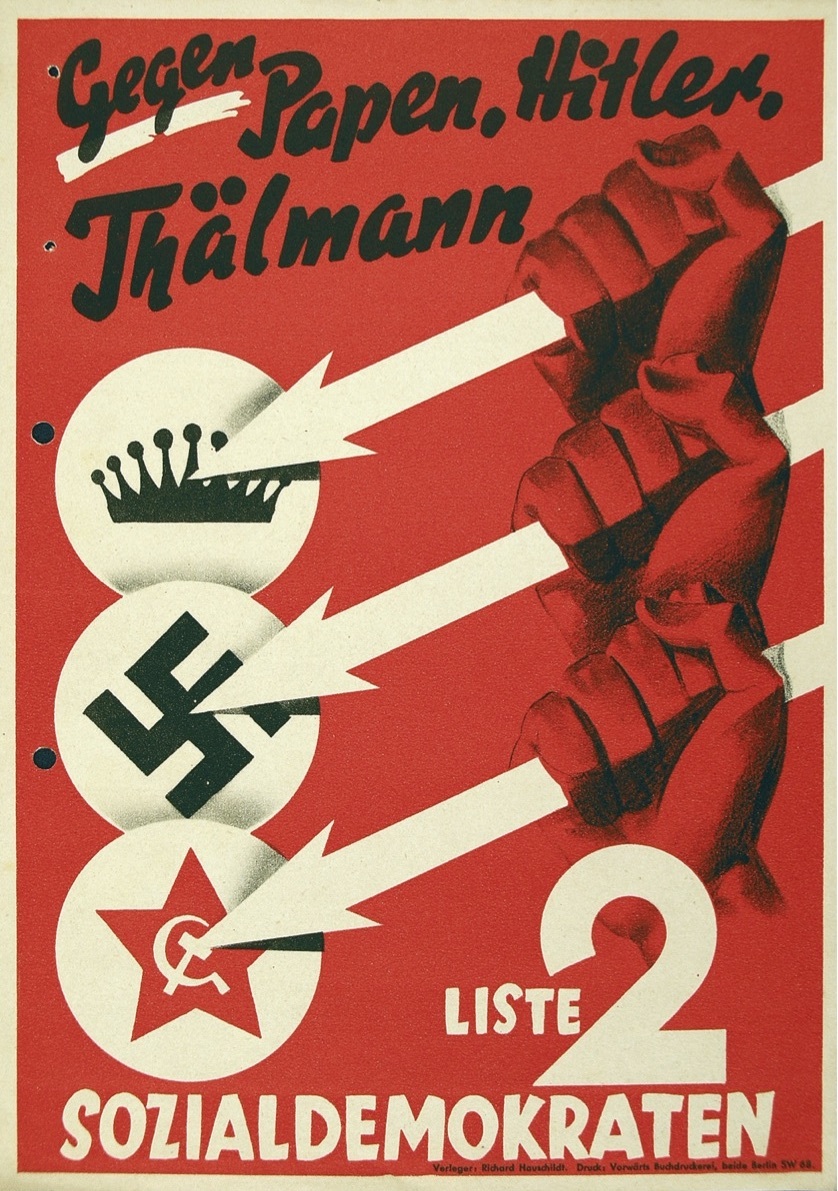Title
I dont have any sources on actual collaboration, but I have a couple of articles about how the SPD created the context for nazis to some to power. From this article http://isj.org.uk/divided-they-fell-the-german-left-and-the-rise-of-hitler/
The SPD participated in a governing coalition with bourgeois and conservative parties from 1928 to 1930. From 1930 to 1932 they tolerated the authoritarian, right wing government by decree of Heinrich Brüning as a sort of lesser evil opposed to the Nazis. Brüning’s solution to the economic crisis was austerity and deflation. He savaged the welfare state, raised indirect taxes and pushed down wages. These measures spelled untold suffering for the millions of workers who supported the SPD. Government employees found their wages cut by 25 percent, unmarried adults were forced to pay an additional tax of 10 percent and workers’ pension contributions quadrupled; simultaneously, social spending was reduced by two thirds. Illness increased as more and more people could no longer afford to see a doctor. The SPD, having campaigned on the left but governed on the right, were punished at the polls. Their lack of credibility led them to go from 30 percent of the vote in 1930 to only 18 percent in 1933. The party leadership steadfastly refused to engage in extra-parliamentary mobilisations or workplace struggles to defend workers’ standards of living.
Looks familiar?
SPD was very against KPD during the last election cycle. The three arrows symbology is the perfect example of the SPD’s left anticommunism position:

Heres another article from the perspective of the KPD on why they were against SPD: https://cosmonaut.blog/2019/01/07/fighting-fascism-communist-resistance-to-the-nazis-1928-1933/
We should not forget that during this period the Social Democrats had considerable powers in the area of law and order, because in 1928 one of their number, Carl Severing, was appointed Minister of the Interior of the Reich. The SPD took advantage of this to institute an extremely efficient reorganisation of the police, with the principal aim of setting up a special corps to prevent Bolshevik disturbances and uprisings.
Unfortunately they were not equally efficient and motivated in preventing and repressing [Fascist] gangsterism. The situation inevitably aggravated the historic fracture between Social Democrats and Communists that had already existed since the murders of Rosa Luxemburg and Karl Liebknecht — a fracture which experienced a particularly acute moment — a point of “no return” — in the events of Mayday 1929.
(Emphasis added. Source herein, and see here for more.)
Would also love to read about it.




